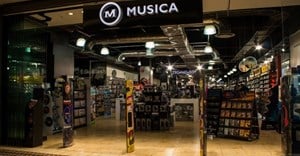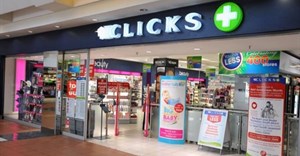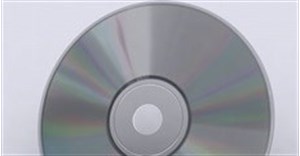Trending




 Sabre EMEA 2024 Awards: Razor PR, Retroviral top SA agenciesDanette Breitenbach
Sabre EMEA 2024 Awards: Razor PR, Retroviral top SA agenciesDanette Breitenbach
Elections 2024
Jobs
- Front Counter Assistant Johannesburg
- Temp Administrator George
- Store Manager Port Elizabeth
- Store Manager George
- Branch Administrator Cape Town
- Financial Manager Vereeniging
- Retail Executive Mbombela
- Retail Promoter Mbombela
- Retail Promotional Agent Mbombela
- Store Leader Durban
Digital music sales only 5%-6% of SA market
The fastest growing electronic device is the media tablet, particularly Apple's iPad. And with an increasing number of people on the Internet, a wider range of music can be found more easily online.
According to research firm Gartner International, worldwide tablet sales are expected to reach 63,64m units in 2011 and accelerate to 326,3m in 2015.
These devices are dedicated almost exclusively to the consumption of media products such as music, movies and e-books and they are outgrowing sales of personal computers (home and business market).
In developed markets such as the US, Europe and advanced Asian markets like Japan and South Korea, digital music has now surpassed physical music sales.
According to the International Federation of the Phonographic Industry 29% of world music sales came from digital music in 2010, around US4,6bn.
In the US only a handful of bricks-and-mortar record stores still exist as most consumers now prefer to purchase music through Apple's iTunes In the Nordic region and Korea about 80% of all music is sold online.
Though in SA digital music makes up only about 5%-6% (according to Gallo Music Group and EMI Music SA) the retail industry has not gone unharmed as consumers question the necessity of purchasing CDs.
According to Musica managing director Ralph Lorenz, CD sales at the business, which is traditionally a music retailer, have dropped to 48% of its R896m turnover in 2011 from 61% of R778,8m in 2006.
Musica's share of the CD market is now at 41% and while CDs remain the single biggest contributor to its turnover, the company has been forced to extend its product range to DVDs, video games, electronic accessories, merchandise (such as T-shirts) and, recently, books.
"As the industry evolves in terms of new ways of consuming music, for example digital downloading (legal or illegal), so physical CD sales have declined," Lorenz says. "However, Musica remains the market leader in the physical CD format as we provide customers with new releases, a wide range and value.
"As discretionary spending remains under pressure, we have seen a big shift towards value offerings, for example our (bundled and discounted) promotions," he says.
In 1997 Musica acquired Compact Disc Wherehouse, a specialist music retailer with its origins in Hillbrow.
Since then the company has been constantly repositioning itself, and in 2006 the Clicks Group, which owns Musica, launched Musica Megastores to replace CD Wherehouse.
"Our technology products, which include gaming and accessories, have shown good growth," Lorenz says. "We believe that physical CDs will always be a large part of Musica's business, as a high percentage of SA consumers prefer engaging music in its physical form.
"The physical music store provides interaction with specialists within the retail field who are passionate about the product they sell. This cannot be experienced in the downloading industry.
"We are also fortunate that local pride ensures that many consumers would rather buy the genuine SA product than a pirated copy. This is quite evident in our sales of local CDs, with the most recent example being the strong support for Zahara, who burst onto the scene in September this year," he says.
Not all retailers have been this fortunate and many have closed their doors in recent years. The urban market has been especially hard hit as an entire distribution footprint disappeared virtually overnight.
In 2009 Music for Pleasure (MFP), a distributor that placed music into most Pick n Pay, Checkers and CNA stores across the country, was liquidated. With the demise of MFP an entire distribution network to over 500 retailers was wiped out.
EMI Music SA MD Pino di Benedetto says the record companies have tried to contact the retailers themselves, but with disappointingly mixed results.
"They weren't exactly trusting of us because they said they were stuck with all the stock from the liquidated company," he says.
Around the same time Jetmart, SA's second-largest seller of music, discontinued its new music offering.
Also in 2009 Reliable Music, another huge music retailer, closed down all its shops around the country.
"When the footprint for urban music disappeared we were in panic mode," Di Benedetto says. "We had all this music but nowhere to sell it."
The answer may lie in the digital space, but with limited access to viable digital platforms (such as iTunes) in SA the few remaining options are in online retailers such as Kalahari and Amazon
Kalahari CEO Gary Novitzkas says e-commerce in SA is still an underdeveloped market.
"E-commerce is generally considered mainstream in a country where it totals 1% of all retail sales," he says. "In SA it tracks at under 0,5%, so we are lagging behind.
"In more developed markets the last numbers I saw showed that e-commerce made up 8% of all sales. The value of e-commerce in SA is around R2bn (according to World Wide Worx), but that excludes travel, which makes up about R1bn on its own."
Though online shopping is increasing, music sales are declining as a proportion of total sales because consumers are shifting their consumption patterns.
"The consumer electronics category continues to be a consistent performer," Novitzkas says. "Demand for tablets, laptops and cameras is also very positive as we approach the festive season.
"It's also a big time for game releases, and e-content such as digital books is very positive and growing exponentially compared with physical content," he says.
Former Kalahari CEO and now CEO of competitor Loot.co.za Gary Hadfield says nonmedia products are growing faster than CDs and DVDs.
"Areas outside media, such as books and CDs, will be key to growth in e-commerce," he says. "We have been experiencing growth of 35%-40% year-on-year for the past three years."
But it doesn't appear likely that SA's music industry will be able to replicate the successes achieved by its overseas counterparts when it comes to digital sales.
iTunes, the world's biggest online retailer and the preferred channel for an increasing number of people for legally purchasing music, won't set up shop in SA because of the small market and high cost of music rights associated with entering the region. Digital sales are also hampered by the low Internet penetration, with only 14% of South Africans having access via a personal computer, according to the Miniwatts Marketing Group.
As physical music sales continue to decline and online sales are constrained by online access, the music industry will need to find a new route to market if it is to remain in business.
Increasingly attention is shifting towards the cellphone industry, where penetration rates are nearly 100%. But it is still early days in selling music over a cellphone. And there is no guarantee this will stop the slide in sales.
Source: Financial Mail
Source: I-Net Bridge

For more than two decades, I-Net Bridge has been one of South Africa’s preferred electronic providers of innovative solutions, data of the highest calibre, reliable platforms and excellent supporting systems. Our products include workstations, web applications and data feeds packaged with in-depth news and powerful analytical tools empowering clients to make meaningful decisions.
We pride ourselves on our wide variety of in-house skills, encompassing multiple platforms and applications. These skills enable us to not only function as a first class facility, but also design, implement and support all our client needs at a level that confirms I-Net Bridge a leader in its field.
Go to: http://www.inet.co.za







